
THREAD: 12 Things Everyone Should Know About IQ
1. IQ is one of the most heritable psychological traits – that is, individual differences in IQ are strongly associated with individual differences in genes (at least in fairly typical modern environments). https://t.co/3XxzW9bxLE


(Note that the Flynn effect shows that IQ isn't 100% genetic; it doesn't show that it's 100% environmental.)

For example, though far from perfect, IQ is the single-best predictor of job performance we have – much better than Emotional Intelligence, the Big Five, Grit, etc. https://t.co/rKUgKDAAVx https://t.co/DWbVI8QSU3



If IQ isn't a valid concept, no concept in psychology is valid.
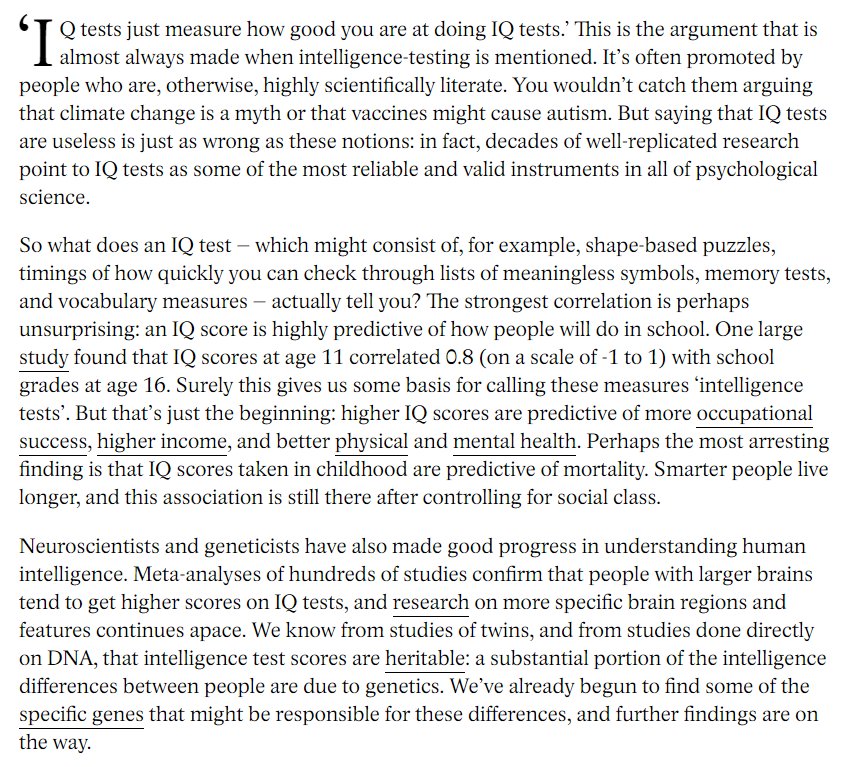
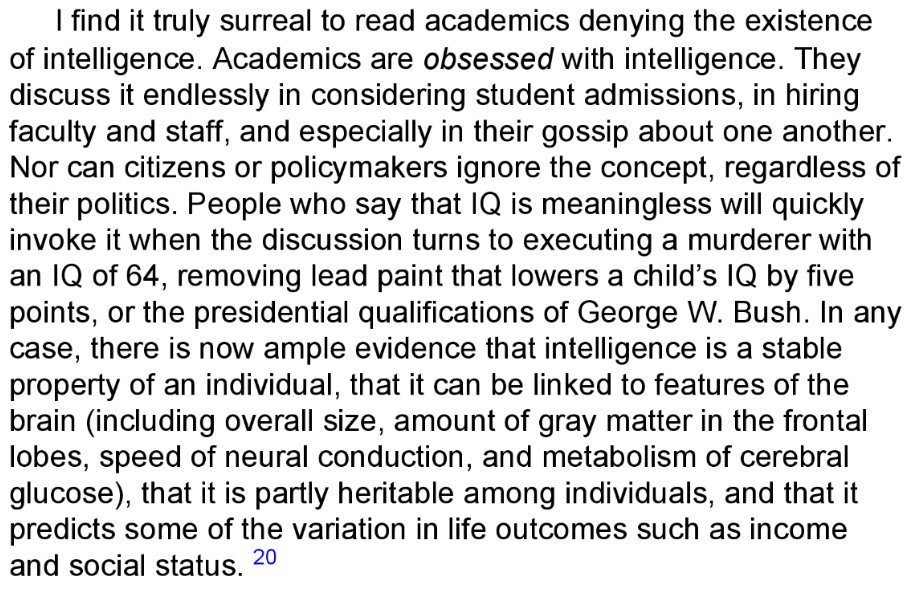
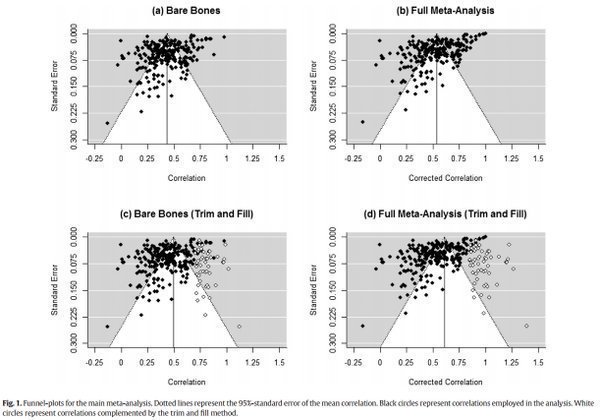
Conversely, IQ-denial could cause real harm by stalling the development of such interventions.
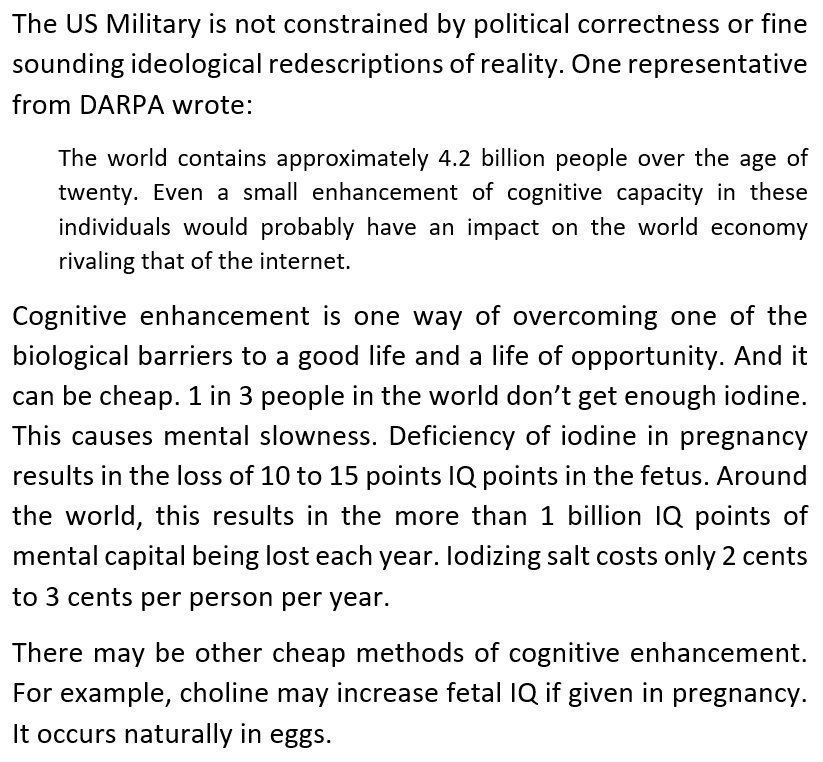
Figure: https://t.co/fogF8GyO8Z
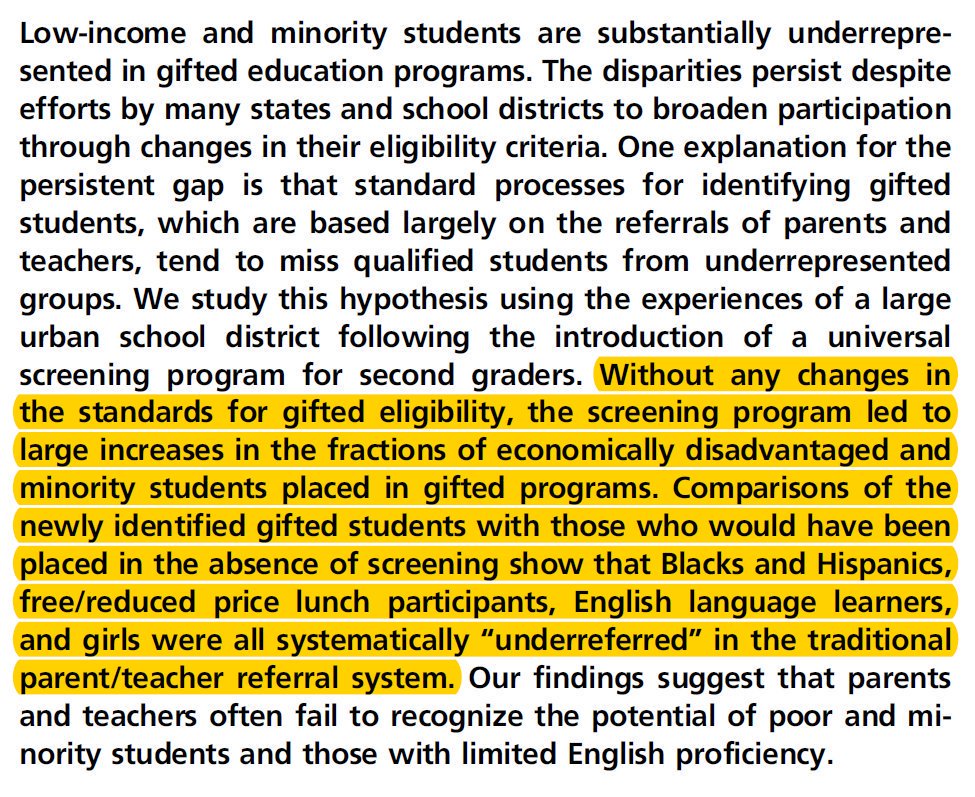
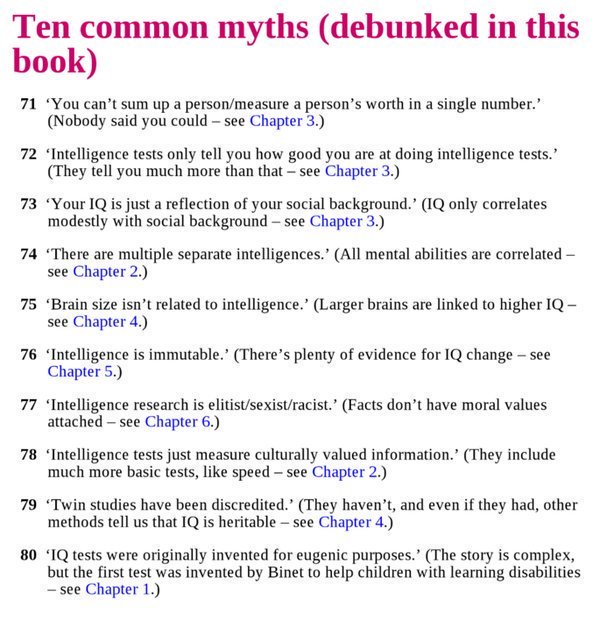
More from Life
👨💻 Last resume I sent to a startup one year ago, sharing with you to get ideas:
- Forget what you don't have, make your strength bold
- Pick one work experience and explain what you did in detail w/ bullet points
- Write it towards the role you apply
- Give social proof
/thread
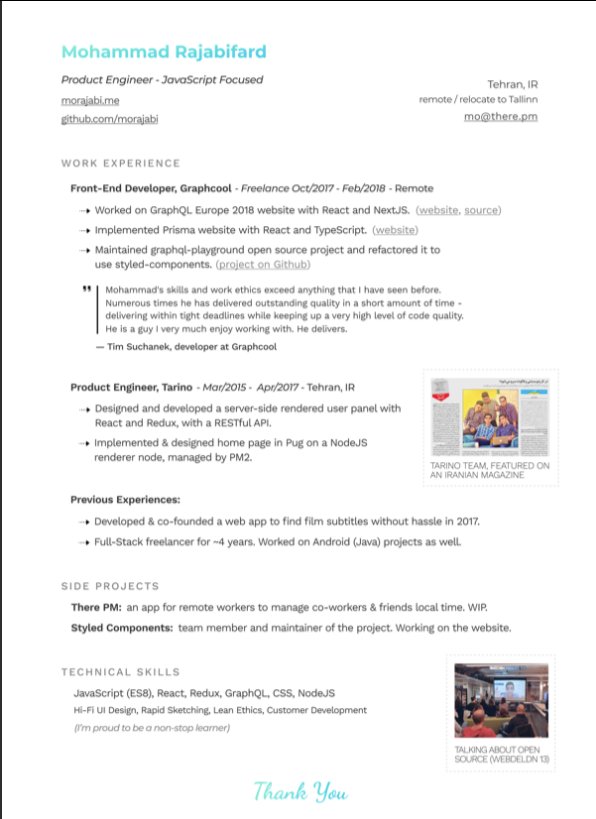
"But I got no work experience..."
Make a open source lib, make a small side project for yourself, do freelance work, ask friends to work with them, no friends? Find friends on Github, and Twitter.
Bonus points:
- Show you care about the company: I used the company's brand font and gradient for in the resume for my name and "Thank You" note.
- Don't list 15 things and libraries you worked with, pick the most related ones to the role you're applying.
-🙅♂️"copy cover letter"
"I got no firends, no work"
One practical way is to reach out to conferences and offer to make their website for free. But make sure to do it good. You'll get:
- a project for portfolio
- new friends
- work experience
- learnt new stuff
- new thing for Twitter bio
If you don't even have the skills yet, why not try your chance for @LambdaSchool? No? @freeCodeCamp. Still not? Pick something from here and learn https://t.co/7NPS1zbLTi
You'll feel very overwhelmed, no escape, just acknowledge it and keep pushing.
- Forget what you don't have, make your strength bold
- Pick one work experience and explain what you did in detail w/ bullet points
- Write it towards the role you apply
- Give social proof
/thread

"But I got no work experience..."
Make a open source lib, make a small side project for yourself, do freelance work, ask friends to work with them, no friends? Find friends on Github, and Twitter.
Bonus points:
- Show you care about the company: I used the company's brand font and gradient for in the resume for my name and "Thank You" note.
- Don't list 15 things and libraries you worked with, pick the most related ones to the role you're applying.
-🙅♂️"copy cover letter"
"I got no firends, no work"
One practical way is to reach out to conferences and offer to make their website for free. But make sure to do it good. You'll get:
- a project for portfolio
- new friends
- work experience
- learnt new stuff
- new thing for Twitter bio
If you don't even have the skills yet, why not try your chance for @LambdaSchool? No? @freeCodeCamp. Still not? Pick something from here and learn https://t.co/7NPS1zbLTi
You'll feel very overwhelmed, no escape, just acknowledge it and keep pushing.
You May Also Like
There are many strategies in market 📉and it's possible to get monthly 4% return consistently if you master 💪in one strategy .
One of those strategies which I like is Iron Fly✈️
Few important points on Iron fly stategy
This is fixed loss🔴 defined stategy ,so you are aware of your losses . You know your risk ⚠️and breakeven points to exit the positions.
Risk is defined , so at psychological🧠 level you are at peace🙋♀️
How to implement
1. Should be done on Tuesday or Wednesday for next week expiry after 1-2 pm
2. Take view of the market ,looking at daily chart
3. Then do weekly iron fly.
4. No need to hold this till expiry day .
5.Exit it one day before expiry or when you see more than 2% within the week.
5. High vix is preferred for iron fly
6. Can be executed with less capital of 3-5 lakhs .
https://t.co/MYDgWkjYo8 have R:2R so over all it should be good.
8. If you are able to get 6% return monthly ,it means close to 100% return on your capital per annum.
One of those strategies which I like is Iron Fly✈️
Few important points on Iron fly stategy
This is fixed loss🔴 defined stategy ,so you are aware of your losses . You know your risk ⚠️and breakeven points to exit the positions.
Risk is defined , so at psychological🧠 level you are at peace🙋♀️
How to implement
1. Should be done on Tuesday or Wednesday for next week expiry after 1-2 pm
2. Take view of the market ,looking at daily chart
3. Then do weekly iron fly.
4. No need to hold this till expiry day .
5.Exit it one day before expiry or when you see more than 2% within the week.
5. High vix is preferred for iron fly
6. Can be executed with less capital of 3-5 lakhs .
https://t.co/MYDgWkjYo8 have R:2R so over all it should be good.
8. If you are able to get 6% return monthly ,it means close to 100% return on your capital per annum.


















